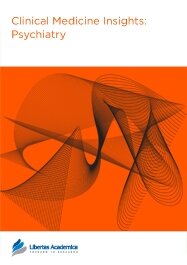

Publication Date: 21 May 2008
Journal: Clinical Medicine Insights: Psychiatry
Citation: Clinical Medicine: Psychiatry 2008:1 1-6

Department of Psychiatry, Kuopio University Hospital and University of Kuopio, Finland. 1Institute of Clinical Medicine, University of Oulu and Lapland Hospital District, Muurola Hospital.
Abstract
Objective: The aim of this study was to explore variables associated with poor recovery from depression.
Method: A sample of depressive patients (n = 121) referred to treatment was followed prospectively for 6 years. Clinical evaluations were done at baseline and at 6 month, 1, 2 and 6 years study visits. A diagnosis of major depression based on SCID interview at 6 year and high BDI score along follow-up indicated poor recovery. A diagnosis of full remission at 6 year and low BDI score during follow-up indicated good recovery.
Results: Chronic depression was found in 15% of patients. A repeated measures analysis of variance of HDRS-, SCL-90, hopelessness (HS) and Social and Occupational Functioning Assessment Scale (SOFAS) scores showed that those with poor recovery had recovered poorly also according these scales during the whole follow-up. Treatment factors did not associate with recovery. Logistic regression analyses revealed an independent association between poor recovery at 6 year and both high HS- and low SOFAS scores at 12 months, 24 months and 6 year assessments.
Conclusions: Assessment of hopelessness and social and occupational functioning help to early identify high-risk patients who would be in need for more individually tailored treatments.
PDF (206.04 KB PDF FORMAT)
RIS citation (ENDNOTE, REFERENCE MANAGER, PROCITE, REFWORKS)
BibTex citation (BIBDESK, LATEX)

The LA experience is exactly what an author would wish for. Reviews are high quality and fast, Editors make decisions on the basis of scientific argument, and the production team is friendly and efficient.
Facebook Google+ Twitter
Pinterest Tumblr YouTube